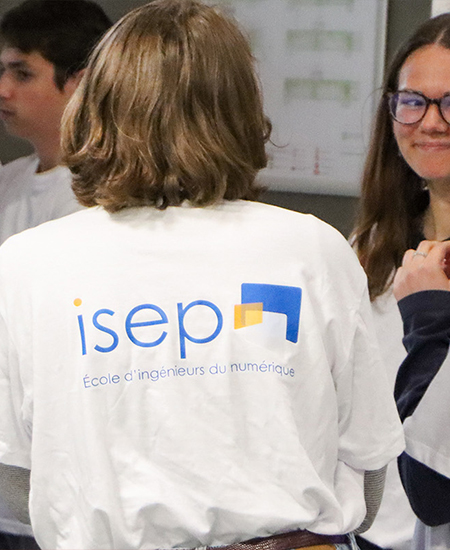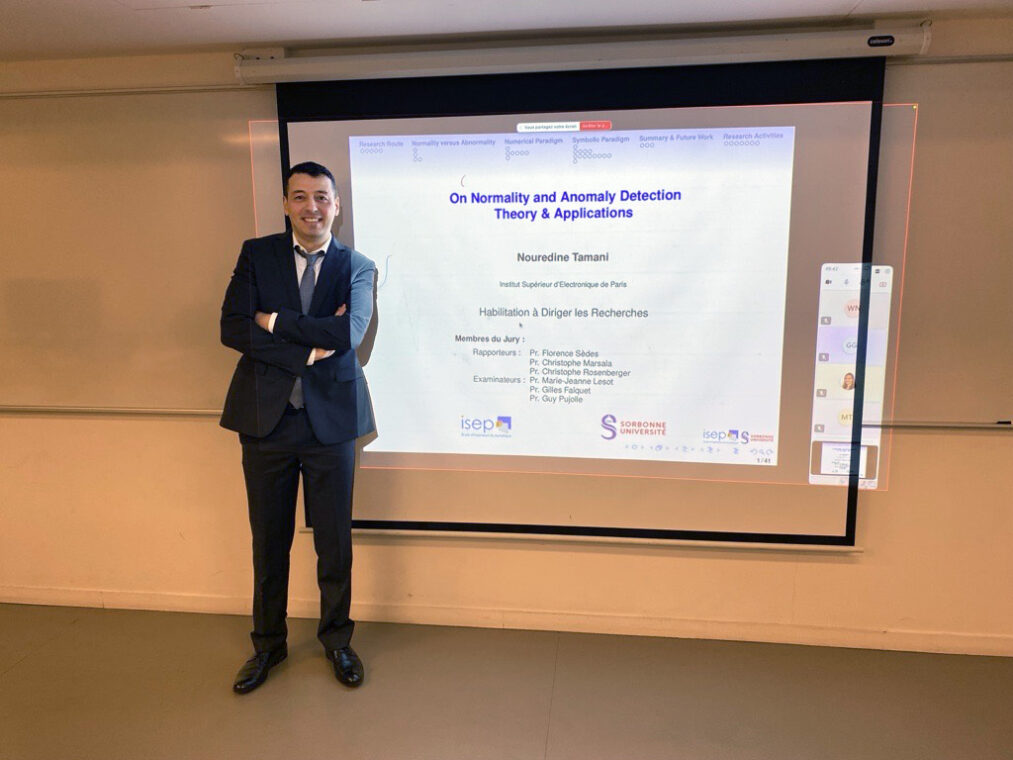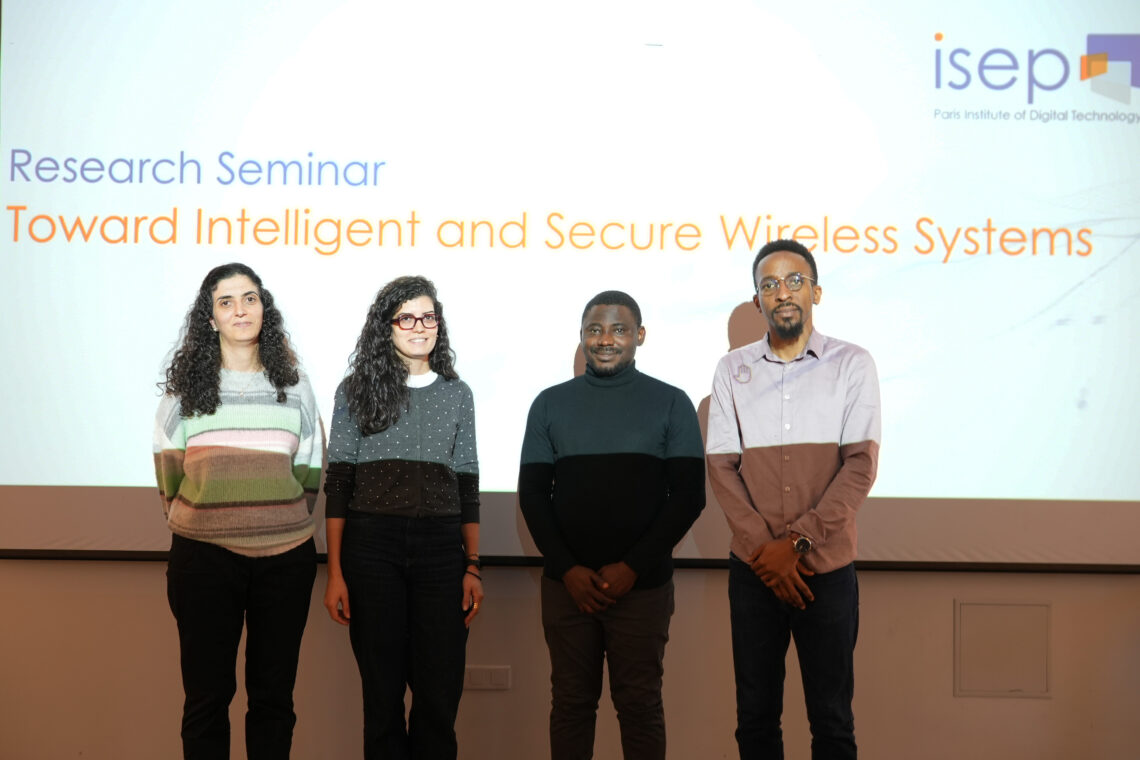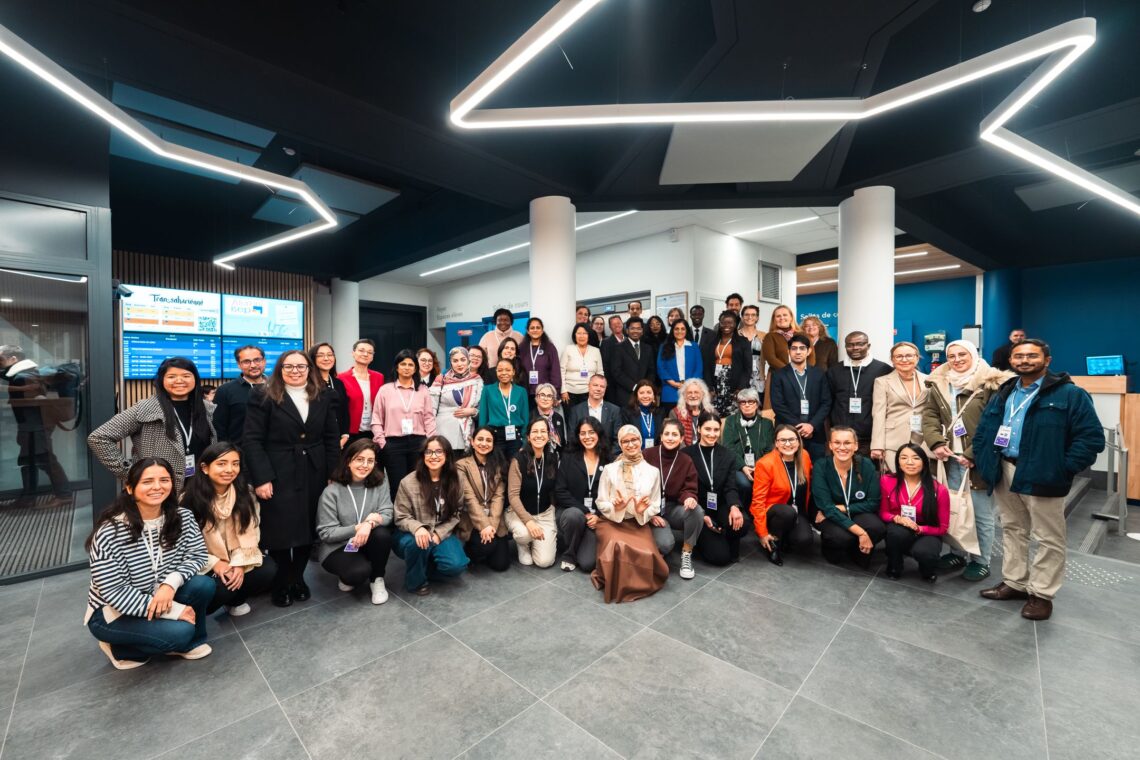Isep Research Seminar – Toward Intelligent and Secure Wireless Systems
Isep and its LISITE research laboratory are holding a new seminar on the theme “Toward Intelligent and Secure Wireless Systems.” This scientific event will showcase the latest research conducted at Isep in the fields of intelligent, energy-efficient, and secure wireless communication systems.
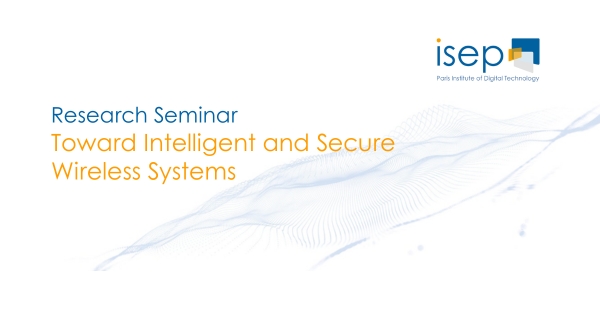
Date: November 27, 2025
Time: 1:30 – 3:00 pm
Location: Isep, Notre-Dame de Lorette Campus, 10 rue de Vanves, 92130 Issy-les-Moulineaux
Isep and its LISITE research laboratory are holding a new seminar on the theme “Toward Intelligent and Secure Wireless Systems.”
This scientific event will showcase the latest research conducted at Isep in the fields of intelligent, energy-efficient, and secure wireless communication systems.
Through three in-depth presentations, Isep researchers will share their latest advances: from AI-based signal recognition to next-generation 6G networks and innovative approaches to securing wireless links in constrained environments.
This seminar is a unique opportunity to explore how innovation, efficiency, and ethics combine to shape the wireless technologies of tomorrow.
Speaker n°1: Ife Olalekan EBO – PhD Student – Isep
Title: The Smart Fusion Approach: Adaptive Signal Technology Recognition for Dynamic Environments
Abstract: Low Power Wide Area Networks (LPWANs) enable cost-effective, low power consumption, and long-range IoT applications but often operate under low Signal-to-Noise Ratio (SNR) conditions. Conventional deep learning models for signal recognition struggle to generalize in such dynamic environments, most especially in spectrum monitoring systems. We propose a lightweight framework combining ensemble learning, a Mixture of Experts (MoE) with uncertainty-aware soft gating, and meta-adaptation using the Almost-No-Inner-Loop (ANIL) method. Expert models trained at distinct low-SNR levels share frozen base weights, while only the classifier head is adapted during few-shot learning for rapid specialization. The uncertainty-aware gating mechanism produces sparse, temperature-controlled expert weights, enhancing robustness and decision reliability. Experiments demonstrate improved accuracy and generalization across both seen and unseen SNR levels, highlighting the framework’s effectiveness for real-world wireless signal technology recognition in spectrum monitoring systems.
Speaker n°2: Dr. Idowu Ajayi – Associate professor – Isep
Title: Knowledge-Driven Deep Learning for Energy-Efficient and Secure 6G Physical Layer Design
Abstract: The vision of 6G wireless networks extends far beyond enhanced data rates, aiming to support ultra-dense connectivity, extreme energy efficiency, and secure communications for intelligent, autonomous systems. With projected device densities reaching 10 million per square kilometer and a target of 10x improvement in energy efficiency, 6G requires innovative physical layer solutions that are secure and sustainable. Given the limited computational capacity of many 6G devices, traditional cryptographic methods may be unsuitable. As a result, physical layer security (PLS) is emerging as a scalable, energy-efficient alternative. In this work, we propose a knowledge-driven deep learning approach to improve the energy efficiency and security of 6G communications. The proposed method replaces a traditional iterative algorithm with a deep learning model that is both power-efficient and fast at inference. This model is designed using a hybrid of two knowledge-based AI paradigms: deep unfolding (which embeds domain knowledge into the model structure) and knowledge-assisted learning (which incorporates wireless-specific losses). To address the complexity constraints of real-time systems, a lightweight version of the model is created using knowledge distillation, making it suitable for deployment on resource-limited hardware. Our results show the proposed method achieves lower peak-to-average power ratio (PAPR), leading to significantly higher secrecy energy efficiency (SEE), while maintaining secrecy capacity comparable to the traditional method. The energy gain comes with a slight trade-off in spectral purity, reflected by a modest increase in symbol error rate (SER). A complexity analysis confirms reduced operations and parameters, validating the model’s deployment readiness. Overall, this study shows knowledge-driven AI as a key enabler of efficient, secure communication in future 6G physical layer designs.
Speaker n°3: Dr. HDR. Lina Mroueh – Associate professor – Isep
Title: Securing Wireless Links with Indexed Partitioned Modulation and Selective Error Propagation
Abstract: In modern military and tactical communications, securing wireless links against interception and exploitation is both a strategic and operational necessity. Military radio platforms, such as autonomous drones, soldier-carried radios, and vehicle-mounted systems, must operate under strict size, weight, and power (SWaP) constraints, which significantly impact radio system design. While traditional cryptographic solutions are effective, they impose challenges in key management, computational load, and quantum resistance. This work introduces a physical-layer security scheme that combines indexed partitioned modulation with interleaved convolutional coding to make the received signal statistically uninformative to unauthorized receivers. A key feature of the proposed method is its ability to simultaneously transmit public and secure information within the same waveform. This mixed-transmission capability allows public data to remain accessible while sensitive bits are protected, which is essential in military scenarios where situational awareness or public messaging must coexist with confidential operations. The scheme leverages time division duplexing (TDD) channel reciprocity to generate secret indexing sequences and injects controlled error propagation that selectively degrades unauthorized reception. We show that, for an adversary unaware of the index sequence, the log-likelihood ratio (LLR) distributions of the protected bits become indistinguishable, leading to vanishing mutual information and preventing bit-level inference. This approach enables robust, simultaneous, and adaptive confidentiality without reliance on traditional encryption, offering a lightweight and low-latency security layer well-suited for SWaP-constrained and delay-sensitive defense systems.
About LISITE – Isep Research Laboratory
LISITE is made up of the DaSSIP group, which brings together skills in image, signal, data and computer processing, and the ECoS group, which brings together skills in electronics and communication systems.
These two groups interact within the framework of multi-disciplinary and collaborative projects in 4 areas of research:
- Digital for environmental health ;
- Massive and heterogeneous data processing in distributed systems;
- Integrated circuits, embedded systems and connected objects;
- Cybersecurity and data protection.

